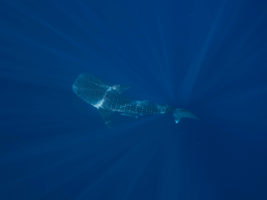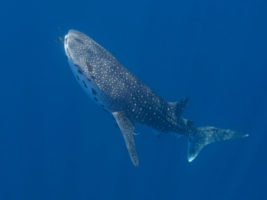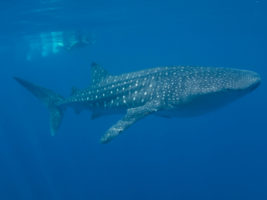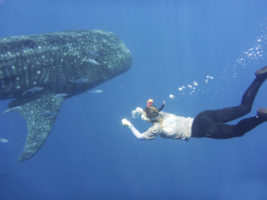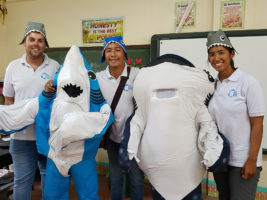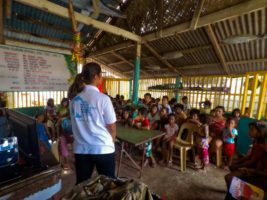Developing sustainable whale shark interaction guidelines in Puerto Princesa, Palawan
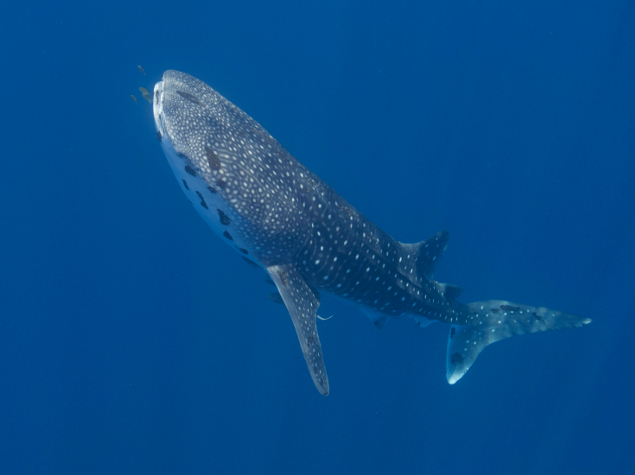
Mainly due to continued exploitation in the Indo-Pacific region, the whale shark was categorized as ‘Endangered’ in the IUCN Red List of Threatened Species in 2016. The species is also listed into Appendix I of CMS and CITES Appendix II.
The number of whale sharks identified to date in Honda Bay, Palawan, is significant, with photo-ID matches to Tubbataha Reefs (approx. 150 km at the South-East of the target zone), and to Oslob (approx. 500 km at the East of the target zone). Whale sharks returning on more than one year to the same site have been identified and there is a need to establish the reason for this.
Currently, there is only one tour operator engaging in whale shark watching in Honda Bay. With the extension of the airport and the opening of international flights across Southeast Asia, this is likely to change.
The aim of this project, implemented by LAMAVE (Large Marine Vertebrates Research Institute Philippines), is to establish baseline data of the whale sharks’ habitat use where the tourism takes place. The NGO will work with the Local Government Units and the Palawan Council for Sustainable Development (PCSD), under whose whale shark management is, to pass an ordinance to regulate whale shark interactions sustainably. During previous surveys, the NGO also observed oceanic manta rays, bentfin devil rays and spinner dolphins. There is currently no data on these species for Palawan, and also no regulation for their tourism interactions either. The ordinance should include recommendations minimizing disturbances on these endangered species as well.
During this period, new surveys will be done during which environmental parameters and prey samples will be collected when possible. Upon sighting a whale shark, a researcher will enter the water, collect photographic-identification images, note waypoint location, and collect biopsy and parasite samples where possible. The whale shark behavior will be also noted.
Simultaneously, the NGO will also participate in school activities and supplement the local educational curriculum with special focus on marine megafauna and marine ecosystems. Finally, a public event, the ‘Whale Shark Festival’, will engage the general public about the occurrence of whale sharks in the region and their importance.
Final report summary (February 2019):
During the project period, various activities have been implemented:
- 159 field surveys led to the identification of 117 whale shark individuals (and 66 more thanks to pictures extracted from social media). Pictures were collected, shark-tourist behaviours recorded during interactions with boats and prey samples collected. Interactions with other marine megafauna species, such as Mobula, were also documented.
- Identification pictures enabled to observe the same individual whale sharks over long distances, highlighting the migratory nature of the species and the need to develop a collaboration between Philippines and neighbouring countries.
- Awareness activities were also conducted in villages nearby the bay.
- An ordinance has been drafted and shared with the Puerto Princesa City Council and the PCSD to regulate tourism interactions with threatened marine species in the bay. It will be under review shortly by the Councils and a consultation will be organized with the communities.
Fondation Ensemble contributes to this project for a second time in 2019:
The NGO will continue to work with PCSD and Puerto Princesa City to push forward the legislation to regulate marine wildlife tourism. Meetings and workshops will be hosted with stakeholders. The NGO also will continue to monitor tourism activity and a training workshop will be held with tour operator staffs. Whale shark surveys will be conducted on the southern part of the Bay, but exploratory surveys will be done in the Northern part, where no data on marine megafauna exists. In November 2019 a biodiversity festival will be hosted in Puerto Princesa City where the NGO will include a whale shark segment to the festival to raise awareness, involving children from the local villages where the species occurs.
Final report summary (September 2020)
During this second period, a memorandum regarding all interactions with marine biodiversity has been signed by 2 of 4 departments in the region (the 2 others were delayed due to elections and COVID). Meanwhile, 139 new studies were held enabling the identification of 179 individuals. This population in the bay is the most important in East Asia. Data was also collected through 300 interactions with tourists. Sensitization activities continued. The next step is the setting-up of a satellite follow-up and the development of a best practices guide with tourist operators.
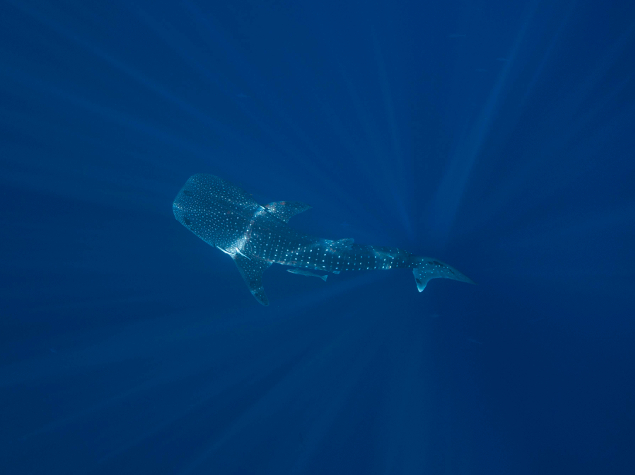
© Gonzalo Araujo / lamave.org

© Gonzalo Araujo / lamave.org
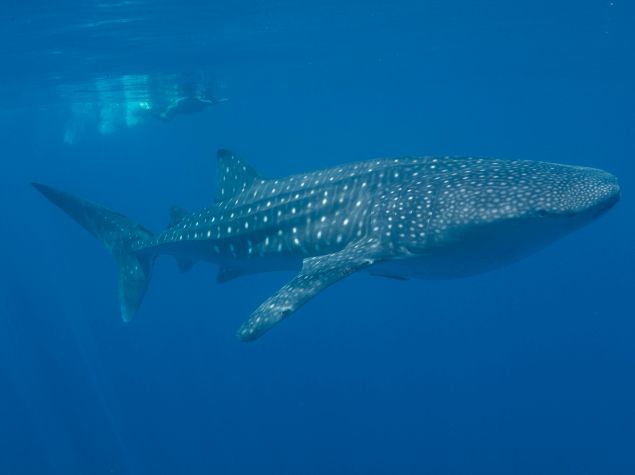
© Gonzalo Araujo / lamave.org
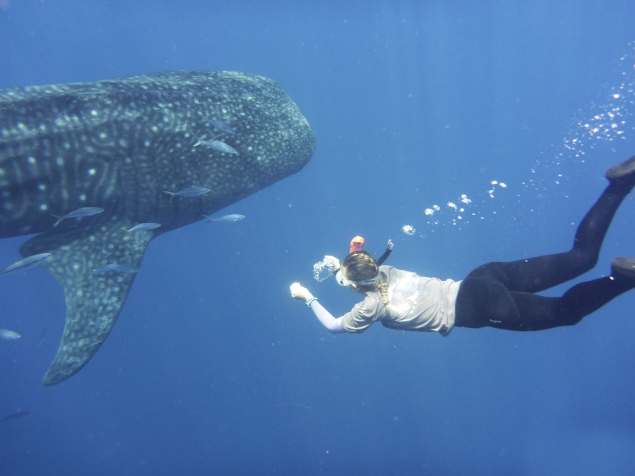
Research Assistant Anika taking a photo-identification of a whale shark in Honda Bay, Puerto Princesa, Palawan © lamave.org
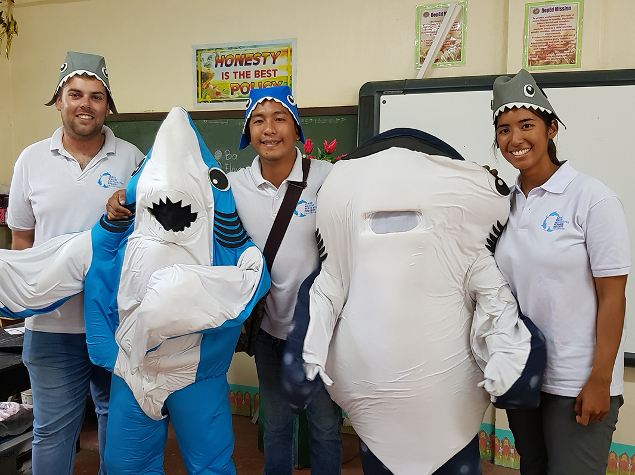
Research Assistants Brian (left), Ethan (centre) and researcher Ariana (right) sharing shark education in Puerto Princesa, Palawan © lamave.org
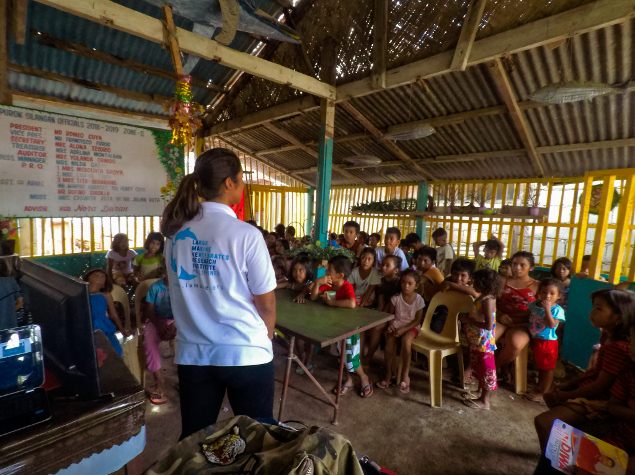
Awareness raising activities in schools © lamave.org
